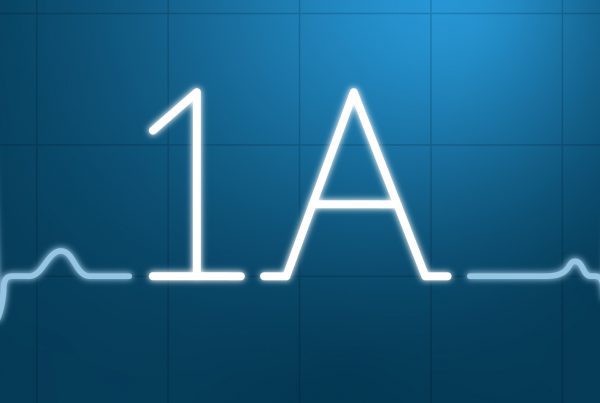The Big Story: Six surgeons general – It’s our duty to warn the nation about RFK Jr.
“We took an oath to declare dangers when we found them. We’re doing that again today.”
A time to pivot, not panic
By Perri duGard Owens and Aemon Weaver
3-minute read
Earlier his month, six former U.S. surgeons general spanning both political parties issued an extraordinary joint letter calling out Health and Human Services Secretary Robert F. Kennedy Jr. for “endangering the health of the nation.”
The statement offers a model for trust-building and mission-serving that thoughtful healthcare leaders should consider as they – and our industry – navigate today’s perilous politics.
In the impassioned op-ed, the physician leaders wrote that, despite their different perspectives, they were “compelled to speak with one voice” as a reflection of an unwavering commitment to science and evidence-based public health.
“We are clear-eyed about the fact that these [public health] systems need to be improved, including paying more attention to areas such as disease prevention, mental health and chronic illness,” they wrote. “But reform must be grounded in truth, transparency and scientific evidence. Without this foundation, we risk not only halting progress but reversing it — costing lives in the process.”
What do you say now?
The stakes are high, and healthcare leaders need their communications and marketing voices at the table more than ever…to help determine when, if and how to enter the conversation.
Sometimes, the right move is to just turn the volume down. Other times, it’s to speak clearly and boldly. Weighing those decisions based on mission, values, geography and yes…state and national politics is important. In a moment when even neutrality can be interpreted as a statement, every choice needs to be intentional.
A Moment to Lead Through Education
This isn’t just a federal personnel issue. It’s an opportunity to lead public education in an environment where science is under attack. Hospitals, academic medical centers, coalitions, safety-net providers and community-based organizations are in a unique position to reclaim the role of trusted health educators.
You don’t need to get louder to be heard. You need to get sharper. Strategic communications must shift toward clarity, localized trust and values-based messaging.
Start by reframing your role: You’re not only delivering care. You’re protecting credible, accessible information in communities that are saturated with confusion. Public health is not the sole responsibility of the federal government – it’s advanced every day by nonprofits, grassroots networks, philanthropic arms of healthcare and pharma companies as well as collaborative health equity ventures. They all play a role in restoring trust.
What resonates isn’t abstract messaging about “science vs misinformation.” It’s empathy. “Is this vaccine safe?” “Can I trust this treatment for my child?” These are the questions your communication, and likely your providers, must answer. Messages rooted in patients’ concerns, fears and lived realities are more likely to reach across partisan lines than any fact sheet.
We also know from our own research and client work that who delivers the message matters just as much as what is said. Clinicians, community advocates, faith leaders and trusted local voices are often more influential than institutional spokespeople. Now is the time to equip those messengers with the facts, context and tools they need.
This isn’t a time to panic. It’s a time to pivot. Strategic communications won’t fix dysfunction at the federal level, but they can protect patients and help communities make informed choices in a deeply politicized environment.
From Politics to Patients: Finding the Right Balance
Experience from inside federal public health agencies has shown that facts alone rarely change minds. If people don’t trust the messenger, they won’t trust the message. That same truth applies to hospitals, health systems and community providers now. Being seen as credible is no longer enough. Trust must be continuously earned.
And for those who have worked within public health institutions (national agencies, local health departments, FQHCs or academic medical centers) the tension between politics and patient care is not abstract. It’s lived. Health systems don’t have the option to ‘opt out’ of public discourse. They are both frontline caregivers and powerful public voices. That dual role brings influence…but also risk.
Overreaching can undermine credibility. Staying silent leaves room for misinformation to take hold. Navigating that tension requires balance.
Public health has always intersected with politics – it’s about how people live together in communities. But today, that intersection is more visible, more volatile and more personal. The environment has shifted from information-driven to identity-driven, where fear, mistrust and ideology shape how messages are received.
Speaking effectively in this environment requires humility, transparency and consistency. Leaders must clearly communicate what’s known, what’s still being studied and where uncertainty remains. Oversimplification or false certainty can backfire. In this climate, honesty builds credibility – confidence alone does not.
With this in mind, consider these recommendations on communicating with the public about healthcare issues and combatting misinformation.
- Lead with Trust, Not Certainty. Acknowledge what you know…and what you don’t. People are more likely to trust leaders who are honest about uncertainty than those who speak in absolutes.
- Start with Patient Questions, Not Policy Positions. “Is this treatment safe for my child?” is a far more powerful prompt than “The data shows…” Begin with the human experience.
- Equip Trusted Messengers. Don’t rely on brand voice alone. Identify and elevate local, credible spokespeople, especially those who already have strong community ties and credibility. The exam room remains one of the most trusted spaces for health communication. Many of these conversations – about vaccines, treatment safety or public health guidance – are happening there first. And clinicians are trusted spokespeople in the wider community. Equipping physicians and care teams with consistent, empathetic talking points and practical tools ensures they’re prepared to address misinformation and reinforce trust at the point of care and beyond.
- Shift from Panic to Purpose. Don’t react out of urgency. Instead of reacting to misinformation with urgency alone, build long-term resilience through clear, consistent communication grounded in values.
The Bottom Line
We can’t control political narratives. But we can equip our clients to navigate them – with skill, strategy and a deep understanding of what patients actually need: clear, empathetic, consistent truth.
When public trust is under attack, healthcare communicators must become public educators. Not with slogans, but with substance. Not with defensiveness, but with humility. And not just to defend science…but to protect the people counting on it.
Contributors: James Cervantes, Isaac Squyres, David Jarrard, Tim Stewart, Emme Nelson Baxter
Image credit: Shannon Threadgill




